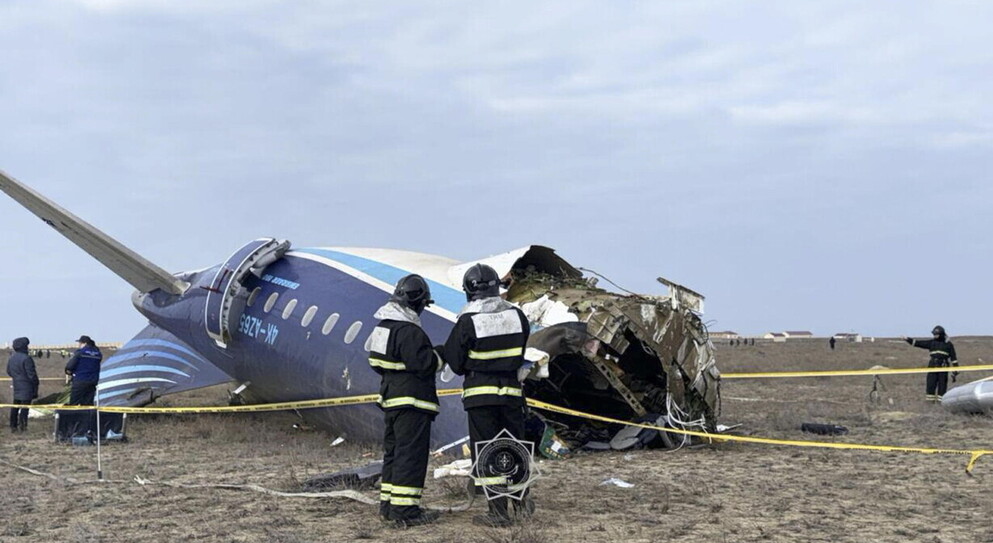Putin’s war and the broader threat. The azeris accuse Moscow of downing the Azerbaijan Airlines Embraer 190
This article is translated by artificial intelligence. If you want to report errors you can write to [email protected]
The first lesson the West should have learned from Russia’s large-scale war against Ukraine is that there are no accidents. There are no “tragic coincidences.” This applies to the Azerbaijan Airlines Embraer 190, which crashed yesterday while attempting to land in Aktau, Kazakhstan. Putin’s reckless war against Kyiv has long posed a threat to civilian air transport.
International investigators are working to determine the true cause of the crash. The Azerbaijan Airlines plane was en route to the Russian city of Grozny, the capital of the Chechen region. For reasons still unverified, the aircraft was diverted while approaching its destination and crashed during an attempt to land about 400 kilometers east of the Caspian Sea at Aktau airport. Upon landing, the plane broke in two, resulting in the deaths of 38 people and injuries to 29 survivors.
In their initial statements, Russian and Azerbaijani authorities described the crash as a fatal accident caused by bad weather, fog, and a collision with a flock of birds. However, some Azerbaijani government sources told Euronews yesterday afternoon that they believe a Russian surface-to-air missile is a more likely cause. Public photographs show several holes on one side of the aircraft, and aviation experts noted that the plane experienced radar interference before the crash, failing to transmit regular information during part of its journey. The area was reportedly the site of a Ukrainian defense counterattack involving drones, raising the possibility that a Russian missile may have mistakenly targeted the aircraft, confusing it with a drone, or hit it with stray shrapnel.
If war is no longer confined solely to the battlefield–it wasn’t even seventy years ago–today, the theory of hybrid conflict has become very real. It consists of sabotage, disinformation, manipulation, and “accidents” that are not accidents but are the direct consequences of a war initiated almost three years ago.
Yesterday, Finland opened a criminal investigation into the potential involvement of Russia’s so-called “shadow fleet” in the severing of an undersea electric cable between Finland and Estonia on Christmas Day. On December 24, the Russian ship Ursa Major suddenly sank in international waters off Spain. According to the operator OOO Oboronlogistika, which works on behalf of the Russian Ministry of Defense, the ship reportedly experienced three explosions before sinking in what it described as a “terrorist attack.” Putin’s war has long ceased to be limited to aggression against Ukraine.

